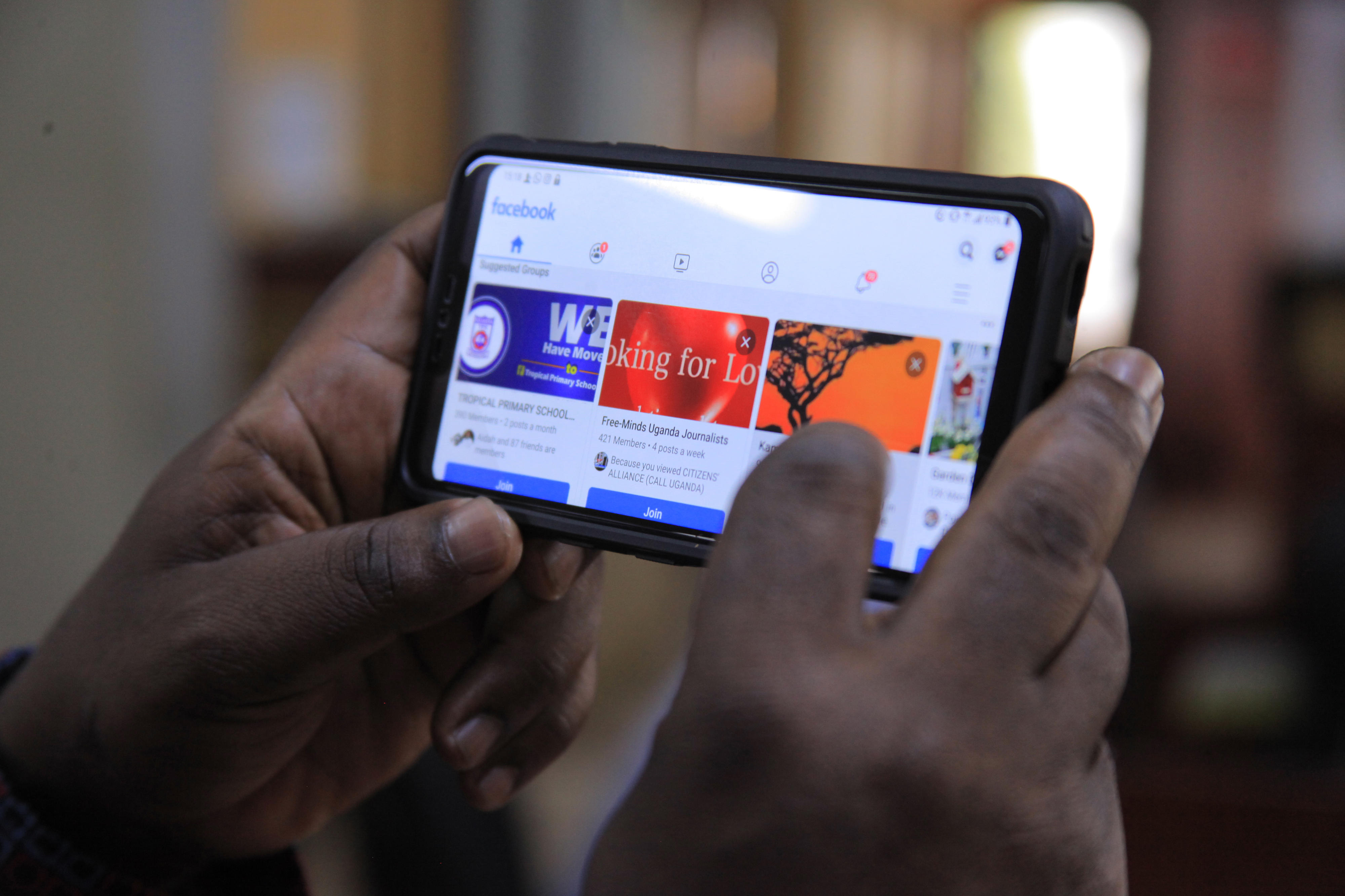Prime
URA collects Shs700m from Facebook users

Blocked. A man looks at different images on Facebook. Facebook remains blocked by the Ugandan government since 2021, but still boasts of the highest number of users at 2.5 million. PHOTO / EDGAR R. BATTE
What you need to know:
- A large number of Ugandans, including some government agencies and private companies use Virtual Private Networks to access the platform
- URA has earmarked Facebook, among other digital platforms for the digital economy revenue, and expects to collect at least Shs5b in taxes from this measure.
Uganda Revenue Authority (URA) has so far raised Shs700m in Value Added Tax (VAT) from Ugandan Facebook users who subscribe to the platform for digital marketing purposes.
URA’s Commissioner for Domestic Taxes, Sarah Chelangat who made the revelation, did not divulge details of how many Facebook users made the contribution to Value Added Tax (VAT) revenues.
Facebook remains blocked by the Ugandan government since 2021, but still boasts of the highest number of users at 2.5 million as of 2022, according data published in Meta’s advertising resources from Datareportal.com.
A large number of Ugandans, including some government agencies and private companies use Virtual Private Networks to access the platform.
It is anticipated that opening the platform could unlock more revenue, and let the digital economy thrive.
The Tax man has ear marked Facebook, among other digital platforms for the digital economy revenue, and expects to collect at least Shs5b in taxes from this measure.
Raising digital revenue
Chelangat said URA has so far made inroads in raising revenue from the digital economy in form of any electronic payments made on online advertisements and meetings, Netflix and other online platforms such as Amazon and Google.
Facebook on its part made it clear in early October last year, that; “Facebook ads from Uganda will be subjected to a value added tax (VAT) at the applicable local rate of [18 percent],” according to a statement from the platform’s Meta Business Help Centre.
The social media giant provides space to prospective business people to advertise their products at a fee.
Stephen Obeli, founder of Kweli, an e- commerce business, does monthly adverts on Facebook, and made sense of the 18 percent VAT, noting that it is very costly.
“It has inconvenienced the cost of acquiring customers and marketing, and that is not good. Instead of spending $100 (Shs368,474) to acquire 10 customers, I spend more $118 (Shs434,799) for the same number of customers,” Obeli said.
He notes that the cost of customer acquisition remains high, and yet the cost can’t be passed on.
URA, in a published statement in June, said it had made a decision to start collecting tax from non-resident electronic services provider companies operating in the Ugandan economy, effective July 1, 2022.
URA indicates that it had made initial contact with many of the non-resident service providers such as Google, Microsoft, Netflix, Meta, Spotify, Zoom, Amazon, Apple, Bolt, Uber, among others. Some of the entities are said to have registered and paid the tax due.
This followed an earlier public notice on January 27, 2022 notifying all non-resident suppliers of electronic services to collect, file and pay tax.
Some of the services include; online advertising, online music streaming, movie streaming services, websites, web- hosting or remote maintenance of programs and equipment, supply of software and software updates.
Other services include: supply of images, text and information, access to databases, self-education packages, music, films and games of chance, political, cultural, artistic, sporting, scientific and other broad casts and events including television.
According to Section 16(2) (d) of the VAT Act, URA shows that it is empowered to charge VAT on electronic services supplied to a recipient in Uganda.
The Act provides that a non-resident person (NR) is considered to have made a taxable supply in Uganda, where electronic services are supplied to a non -taxable person in Uganda.




